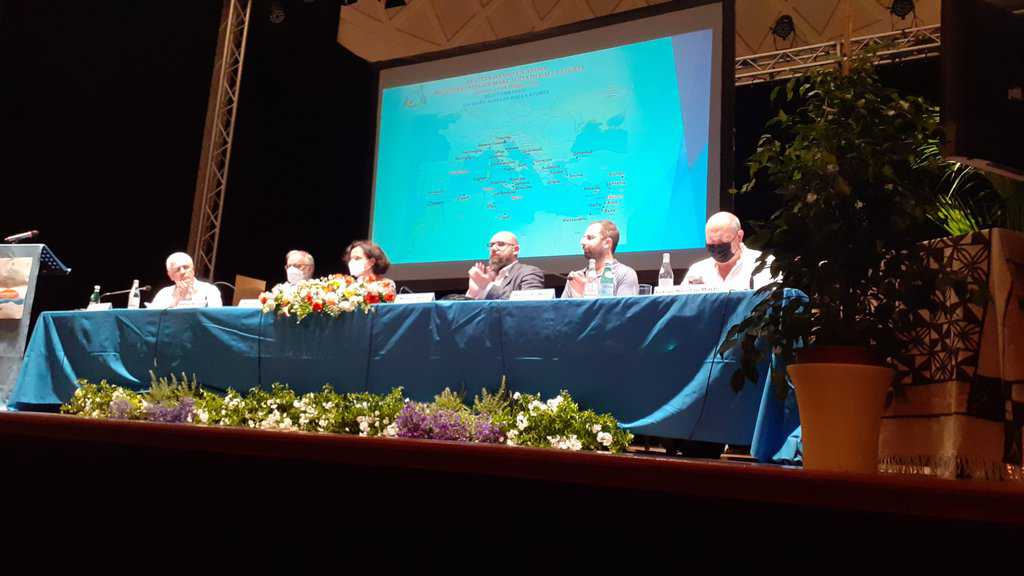
I delivered this speech yesterday at the annual Medi conference organised by the Sant’Egidio community in Livorno Italy under the heading “Cities have a soul: The Mediterranean, a sea moved by history.” The speech was in Italian. Scroll down for an English translation if you prefer.
L’ultima volta che sono stato qui tra voi è stato nel marzo del 2019, per il mio primo convegno Medì. Quella volta abbiamo discusso il tema “Le città hanno un’anima”, anche se nel mio intervento qui mi sono chiesto che cosa fosse successo all’anima della mia città, Malta.

Probabilmente ricordate che vi avevo raccontato la storia di Daphne Caruana Galizia, uccisa da un’auto bomba fuori dalla sua casa nell’ottobre 2017, poco più di un anno prima. In quel periodo io stavo lavorando insieme a dei colleghi su un libro, selezionando le indagini su cui lavorava Daphne nel periodo in cui è stata assassinata. Eravamo convinti che in una di quelle storie stava la causa della sua eliminazione. Mentre le autorità maltesi guardavano da un’altra parte, noi ci siamo concentrati sul suo lavoro nella ricerca di verità e di giustizia per lei.
Pochi mesi dopo che ero stato qui con voi, ho pubblicato insieme a due dei miei amici, un libro sull’assassinio di Daphne. In inglese, il titolo era un riff sul classico di Agatha Christie Murder on the Orient Express.

Questo è stato un Murder on the Malta Express. Malta non ha un sistema ferroviario, ma la metafora di un treno pieno di denaro sporco che sfreccia attraverso il paese sulla strada per Miami o Londra era irresistibile.
Più pertinente era il fatto che, come la vittima del romanzo di Christie, a Daphne non mancavano i nemici. Era improbabile che tutti fossero coinvolti nel suo assassinio, ma tutti avevano da guadagnarci: politici, magnati degli affari, contrabbandieri, agenti che vendevano la cittadinanza maltese agli oligarchi e gli stessi oligarchi che la compravano.
Noi abbiamo lasciato la domanda Chi ha ucciso Daphne Caruana Galizia? formalmente senza risposta nel libro. Ma mi ricordo di quando ero a Madrid, ospite della Comunità di Sant’Egidio nell’aprile 2019 nel momento in cui concludevamo il manoscritto. Mi ricordo di quando ero a Madrid e parlavo al telefono con la famiglia di Daphne che aveva le stesse informazioni che avevamo noi.

Le autorità sapevano da molto tempo chi era probabilmente la mente, ma nessuno moveva un dito per farli arrestare.
Noi – la famiglia, i giornalisti – speravamo che gli assassini non sapessero quello che noi sapevamo sul loro conto. Non potevamo essere noi a segnalarglielo, cioè che a questo punto era giustamente risaputo che avevano ucciso una giornalista. Però volevamo costringere le istituzioni maltesi ad agire, di fare degli arresti.

Una delle ultime cose che ho fatto prima di finire il libro era di mandare delle domande a un certo Yorgen Fenech, un magnate degli affari maltese che dirigeva una grande multinazionale a Malta. Fra gli interessi di Yorgen Fenech era un’azienda nella compagnia energetica Electrogas in cui era socio con la compagnia energetica statale dell’Azerbaijan. Un altro suo interesse era gli affari del casinò.
Ho fatto a Yorgen Fenech delle domande a bruciapelo.

Come mai uno degli uomini in attesa del processo per aver messo la bomba nella macchina di Daphne e per averla uccisa ha un ampio primato di gioco d’azzardo nei casinò di Yorgen Fenech senza quasi mai subire delle perdite?
Yorgen Fenech sapeva di essere sotto torchio. Più tardi avremmo scoperto cosa ha fatto dopo aver ricevuto le mie domande, inclusa una querela paralizzante di 70 milioni di sterline a Londra che non si è avverata a causa del suo arresto. Nel frattempo si era rivolto a degli avvocati locali per mandare tutti i tipi di lettere minacciose e avvertirci di conseguenze impensabili se avessimo deciso di procedere con la pubblicazione.
Abbiamo ricevuto tante lettere minacciose quell’estate.

Il presidente del consiglio di Malta di allora Joseph Muscat, sua moglie Michelle, due dei suoi ministri, e il suo capo di gabinetto, tutta gente che ha dovuto affrontare delle domande spietate da parte nostra mentre preparavamo il nostro libro che investigava l’assassinio di Daphne, si sono rivolti a uno studio legale inglese per spaventarci.
Mi piacerebbe dirvi che non eravamo spaventati. Lavoravo con Carlo Bonini, un giornalista di grande esperienza di La Repubblica, e con John Sweeney, che ha lavorato per trenta anni per il gruppo inglese del Guardian e per la BBC. Anche loro due hanno avuto la loro parte di lettere minacciose durante la loro carriera. Quello che faceva venire i brividi era l’effetto che queste minacce producevano sugli editori. Nessuno voleva pubblicare il nostro libro siccome temevano delle querele più gravi. Finché abbiamo trovato una piccola casa editrice a Malta che era pronta a correre il rischio.

In seguito, non ci sono state più azioni legali contro di noi, e il libro è stato pubblicato a livello internazionale, inclusa la traduzione in italiano pubblicata dalla Mondadori.
Sarebbe sbagliato pensare che fosse solo il nostro libro a cambiare il corso degli eventi. Ma insieme al lavoro svolto da molti altri giornalisti che lavorano sull’isola e altrove, ha aiutato a spingere nella direzione da noi desiderata.
Abbiamo pubblicato il libro il giorno del secondo anniversario dall’assassinio di Daphne, nell’ottobre 2019. Le nostre domande rivolte a Yorgen Fenech hanno dimostrato, se non altro, i nostri sospetti inequivocabili sul suo coinvolgimento.

Un’indagine condotta da Reuters un anno prima aveva già scoperto come Yorgen Fenech possedeva una compagnia a Dubai che era stata svelata dai Panama Papers nel 2016, come un mezzo per dei ministri corrotti maltesi. Il cappio si stringeva.
Ci eravamo fatti l’abitudine all’impunità di cui godevano i criminali a Malta. Ma questo non poteva mai significare che noi l’avremmo accettata. Nel nostro ruolo di attivisti, abbiamo continuato a fare pressione che avevamo messo in moto il giorno stesso in cui Daphne era stata ammazzata.

Ci siamo riuniti ogni mese alla Valletta e abbiamo organizzato delle proteste che continuano ancora oggi. Ad un monumento improvvisato per commemorarla, precisamente di fronte al tribunale di Malta, la gente ci veniva ogni giorno per porre fiori e candele.
Quest’atto innocente ha preso una svolta minacciosa. Probabilmente l’ho menzionato l’ultima volta quando sono stato qui.

Il governo pubblicamente ha dato degli ordini per far pulire il monumento, togliendo i fiori e le candele tutti i giorni, qualche volta anche varie volte al giorno. Hanno continuato a fare questo fino a quando la corte ha deciso, molto più tardi, che le azioni del governo costituivano una violazione scandalosa del diritto fondamentale di libertà d’espressione.
Ma prima che succedesse questo, ai sostenitori del governo è stata data l’impressione che noi facessimo qualcosa di illegale, perciò considerandosi dei veri cittadini, hanno molestato i manifestanti, delle volte anche fisicamente. Sono un uomo grande e robusto. Mia moglie non lo è. Lei è stata aggredita fisicamente da due persone, le hanno fatto male e hanno distrutto il suo cellulare. E lei non è stata l’unica.
In quei giorni, ci è venuto il dubbio se valessero la pena tutti questi sforzi e tutto questo odio. Direi di sì, perché alla fine, è quello che ha fatto cambiare le cose: la storia è rimasta viva e la pressione non si è mai rallentata.

Mentre succedeva tutto questo, uno degli assassini, tuttofare di carriera, di nome Vincent Muscat, l’uomo che ha trasportato la bomba dal deposito al luogo del delitto e che, dall’altra parte della valle, ha poi aspettato che Daphne uscisse di casa per il suo ultimo viaggio, si è aperto con la polizia e ha confessato quello che sapeva.
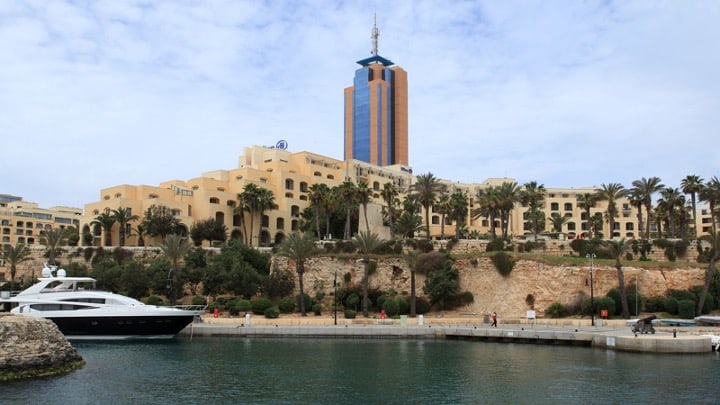
Lui ha puntato il dito contro un tassista che lavorava all’Hotel Hilton. Quando abbiamo sentito questo, sapevamo cosa significava. L’Hotel Hilton appartiene a Yorgen Fenech. Il tassista si chiama Melvyn Theuma.
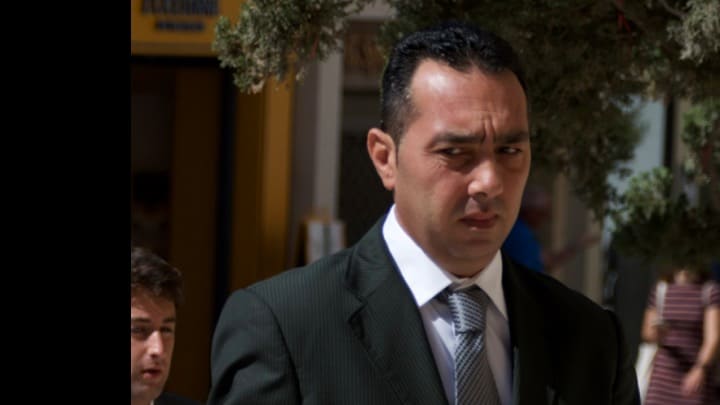
La polizia ha indagato questo Melvyn Theuma. Si è scoperto che lui dirigeva un lotto clandestino, tenendo milioni in contanti nella propria casa. Per un lungo periodo, lui faceva delle commissioni per il suo capo Yorgen Fenech. Il giorno dopo che gli esecutori sono stati arrestati, lui è andato dal suo notaio per scrivere un testamento. Aveva solo trentotto anni.
Perché la polizia non ha arrestato questo tizio? Lui poteva fornire loro l’intera cospirazione. Avrebbero potuto finalmente chiudere il caso.
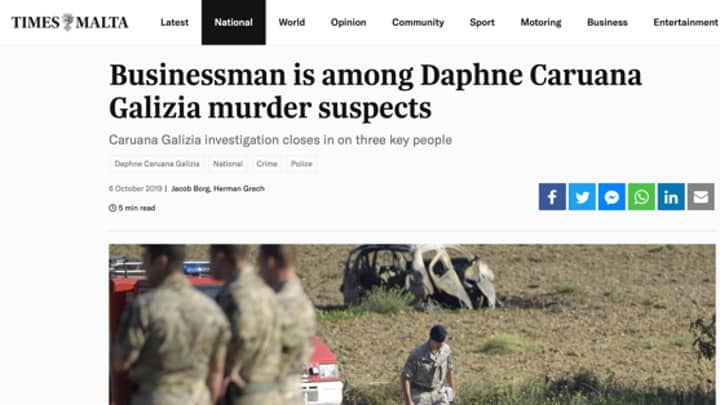
Dei giornalisti hanno cominciato a dare ad intendere sui giornali che sapevano di Melvyn Theuma. Era possibile che la pressione imposta su di lui u sulla polizia potesse rompere la situazione di stallo.
Alla fine l’impasse si è rotto. Nel novembre del 2019 Melvyn Theuma è stato arrestato per un’indagine dell’Europol su una questione di riciclaggio di denaro sporco. Appena in arresto lui ha “cantato” quasi immediatamente.
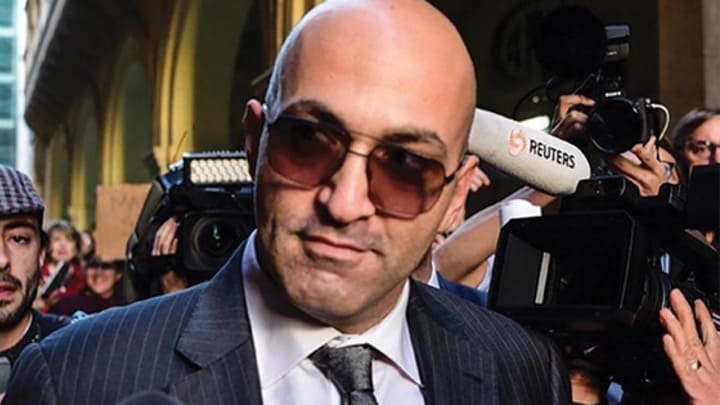
Ha chiesto l’immunità per consegnare alla polizia il pesce grosso: il signor Yorgen Fenech.
Questo ha dato inizio ad una catena di episodi che hanno scosso il paese. Mentre si svolgevano questi eventi, noi sentivamo come se stesse per arrivare una svolta, come se si stesse avvicinando una soluzione. Stavamo scoprendo la verità, ed in quel momento sentivamo il sapore di giustizia.
Vorrei parlarvi di alcune cose che abbiamo scoperto perché gettano una luce più forte sulla realtà maltese di quello che pensavamo di conoscere nella primavera del 2019, prima che iniziasse tutto questo.
Melvyn Theuma non aveva alcun dubbio sul proprio arresto e prima della sua cattura passava il tempo a raccogliere prove che avrebbero rafforzato le accuse che stava pianificando contro i suoi capi. Le prove includevano delle registrazioni segrete delle sue conversazioni con Yorgen Fenech.
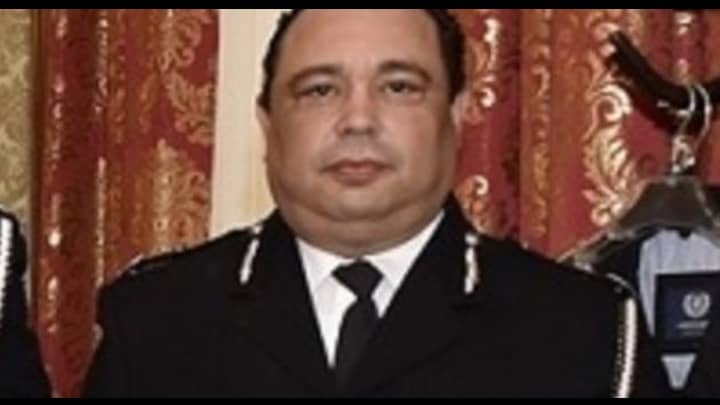
Da questo, era chiaro che potevamo sapere che Yorgen Fenech aveva dato ordine e pagato per l’assassinio. Abbiamo saputo anche che Yorgen Fenech era un amico intimo di Silvio Valletta, un amico molo altolocato. Silvio Valletta era un Vice Commissario della Polizia, responsabile di tutte le maggiori indagini sulla criminalità. Valletta passava molto tempo al ranch di Fenech. Viaggiavano insieme per assistere a delle partite di calcio, ovviamente con tutte le spese coperte da Fenech.
Valletta era un amico nel posto giusto. Mentre era capo del dipartimento della polizia per indagare sulla criminalità, ripetute richieste di procuratori siciliani per informare Fenech che veniva investigato per partite truccate, non arrivavano mai a destinazione.
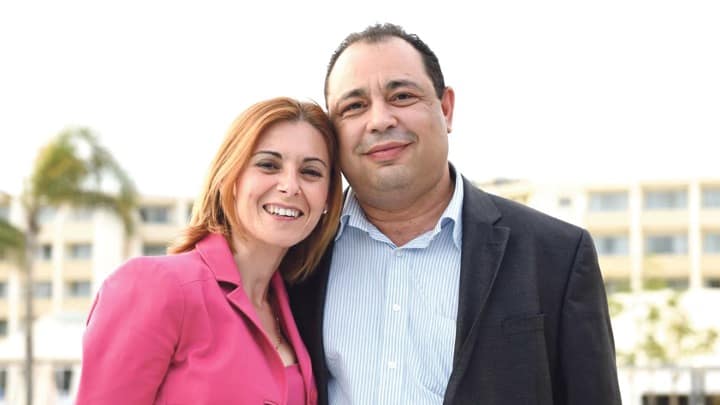
Dovrei anche accennare al fatto che la moglie di Valletta era un ministro del governo. La famiglia di Daphne ha chiesto in tribunale per ben due volte di togliergli l’incarico di indagare sull’assassinio della loro madre. Non sono certo che loro sapessero veramente il perché, ma mentre Silvio Valletta era il capo, non avrebbero mai agito contro il suo assassino.
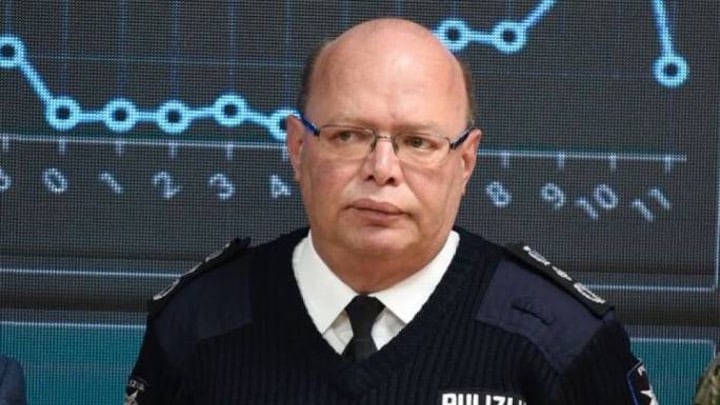
Melvyn Theuma aveva anche amici in posti altolocati. Tramite un amico in comune, lui era in contatto con Lawrence Cutajar, il Commissario della Polizia di quel tempo. Cutajar sapeva che i suoi ufficiali stavano indagando Melvyn Theuma, eppure ha segnalato a Theuma del suo imminente arresto, iniziando una discussione sull’immunità da procedimenti giudiziari prima ancora che non fosse mai stato in manette.
Melvyn Theuma non ha menzionato solo Yorgen Fenech.
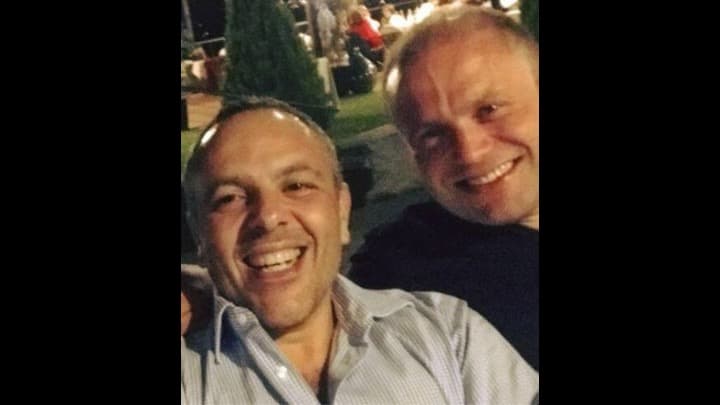
Ha menzionato anche Keith Schembri, il capo di gabinetto di Joseph Muscat, smascherato dai Panama Papers, un amico intimo di Yorgen Fenech. Non abbiamo mai saputo esattamente quanto Melvyn Theuma sapesse del possibile coinvolgimento di Keith Schembri nell’assassinio. Benché lo avesse menzionato, in tribunale lui ha detto ripetutamente che non poteva giurare che Schembri fosse un co-ideatore dell’assassinio.
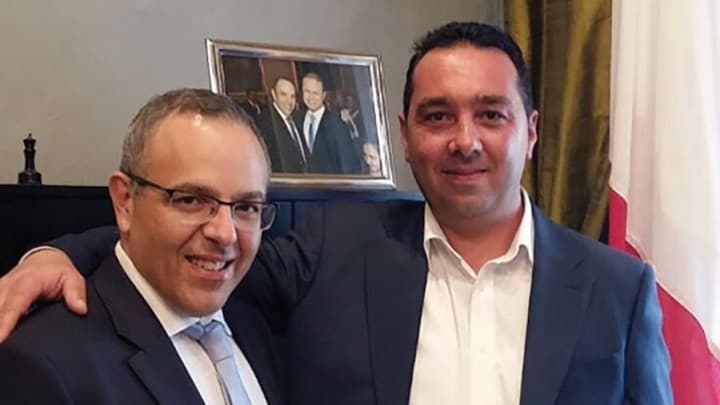
Quello che abbiamo saputo era che Keith Schembri è intervenuto perché Melvyn Theuma ricevesse un salario mensile statale per un lavoro per il quale non si è mai fatto vivo: e questo ci ha portato alla conclusione che noi, come contribuenti, abbiamo ben pagato una parte dei costi per l’assassinio di Daphne.
A questo punto, vorrei mettere in chiaro che tutti quelli coinvolti negano qualsiasi misfatto. Fino ad oggi, solo due persone sono considerate colpevoli dell’assassinio di Daphne. Uno è Melvyn Theuma a cui è stata concessa l’immunità per testimoniare contro l’altri. L’altro è il tuttofare di poco conto che ha svelato alla polizia i misfatti di Theuma e di altri criminali in cambio di una riduzione di carcere di quindici anni.
Finora il sistema giudiziario di Malta non è riuscito a processare nessuno, ancor meno ad assicurare la loro condanna.
Speriamo che un giorno tutte quelle prove saranno presentate ad un processo. Una delle registrazioni riporta una conversazione tra Yorgen Fenech e Melvyn Theuma in quei giorni quando temevano di essere arrestati e pensavano ai modi in cui potevano farla franca.
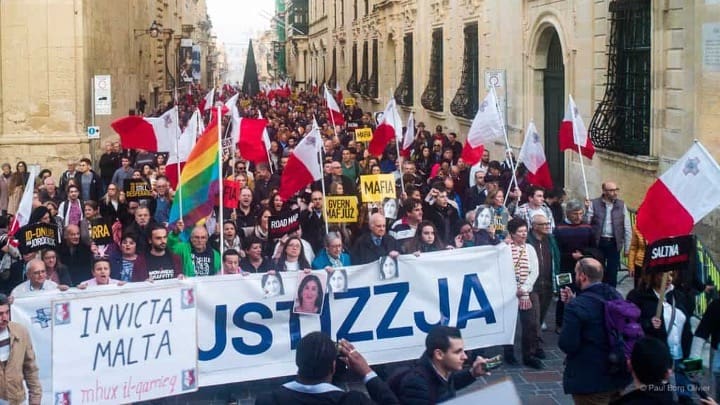
Si condividevano le preoccupazioni a causa di manifestanti a Valletta che chiedevano giustizia per Daphne. Avevano paura delle masse. La rabbia della gente spaventava questi criminali incalliti. Quando abbiamo sentito questo, per noi era un momento di pace e razionalità. Nessuna lotta per la verità è totalmente inutile.
Ma la nostra lotta non è stata neanche totalmente utile. Non è solo perché Yorgen Fenech non è stato condannato. Quando Yorgen Fenech è stato arrestato, il suo cellulare è stato confiscato dalla polizia. Avrebbe potuto essere un grande tesoro di prove per capire come la criminalità e la corruzione fossero penetrate nello stato di Malta. Tutti erano amici di Yorgen Fenech. Lui truccava concessioni di progetti per costruire i suoi grattacieli.
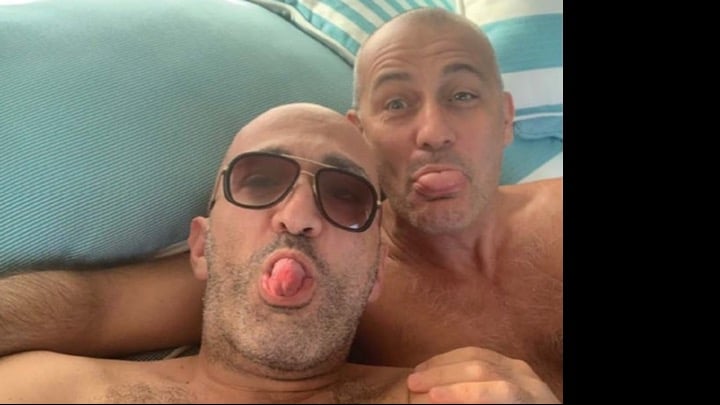
Condizionava le autorità dei giochi per il riciclaggio del denaro tramite i suoi casinò.
Quello che ci turbava profondamente in quei tempi era che lui copriva Joseph Muscat di regali costosi, anche quando Joseph Muscat sapeva che Yorgen Fenech era il maggior indiziato per l’assassinio. Yorgen Fenech era capace di assicurarsi la sua impunità, mettendosi sotto la protezione del politico più potente del suo paese.

La gente era arrabbiata e indignata nel leggere le trascrizioni di quelle conversazioni e presto Joseph Muscat è stato costretto a dimettersi. Keith Schembri è stato arrestato. Anche se rilasciato più tardi, non c’era più la possibilità che lui tornasse al potere politico.
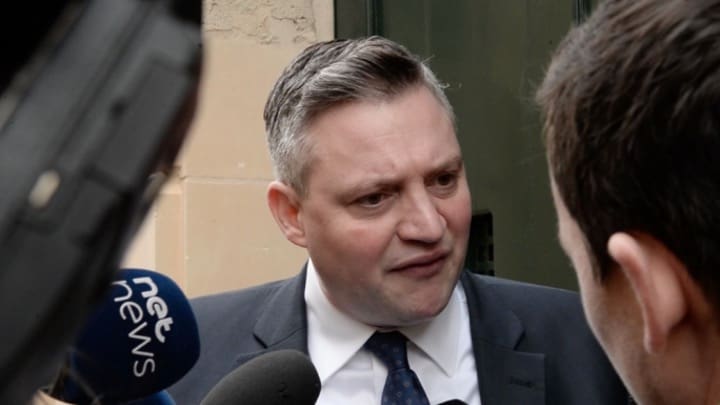
Anche Konrad Mizzi, l’altro ministro dei Panama Papers, ha perso la sua posizione altolocata.
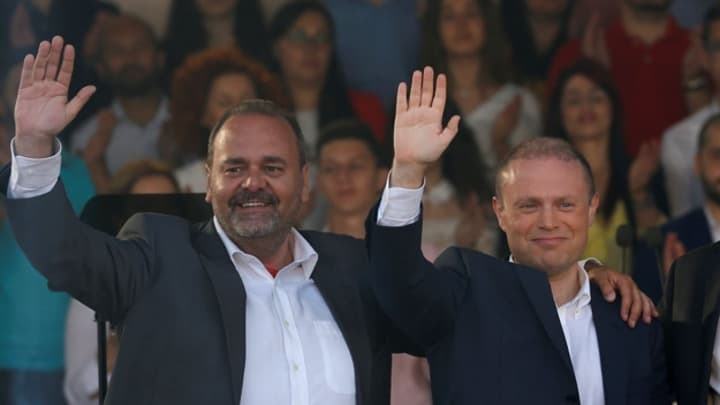
Come anche Chris Cardona, i cui coinvolgimenti in vari reati non erano più solo un sospetto.
Nonostante tentasse a rimanere a galla, Joseph Muscat è stato costretto a concedere quello che aveva rifiutato per due anni: cioè di dare inizio a una inchiesta pubblica per stabilire cosa era successo a Daphne Caruana Galizia e perché.
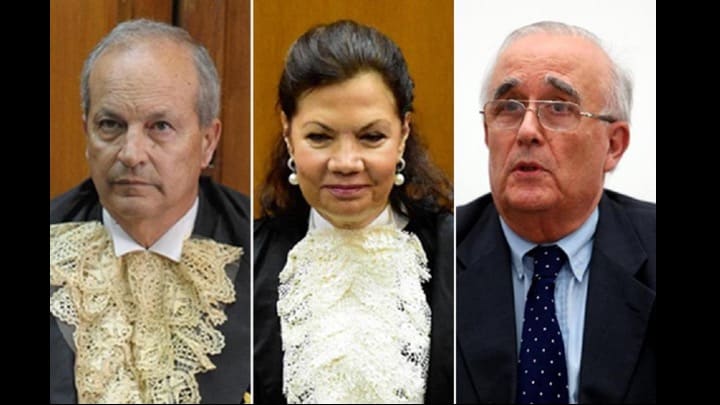
Il processo era in principio ed in concreto una rivincita per Daphne, per la sua famiglia e per i loro sostenitori. L’inchiesta ha concluso che lo stato di Malta era responsabile dell’assassinio di Daphne. Come anche che le istituzioni di Malta hanno ignorato la corruzione che lei svelava e non hanno fatto niente per debellare la corruzione.
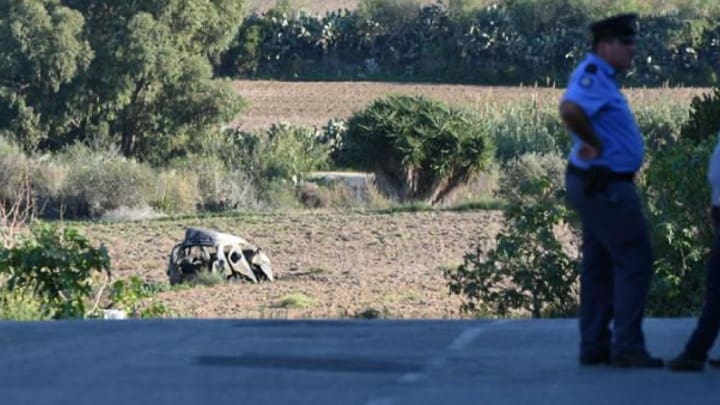
E anche che la polizia di Malta non è stata capace di proteggere Daphne quando il pericolo che lei affrontava era così evidente. L’inchiesta ha concluso che Joseph Muscat e i suoi ministri avevano promosso il clima di impunità che ha fornito ai criminali l’idea che potevano uccidere Daphne e farla franca.
Se questo fa pensare ad un finale felice e che finalmente abbiamo raggiunto la giustizia, mi dispiace ma non è così.
È già terribile il fatto che nessuno è stato condannato per l’uccisione di Daphne, anche se sappiamo da così tanto tempo chi era, molto probabilmente, direttamente responsabile.
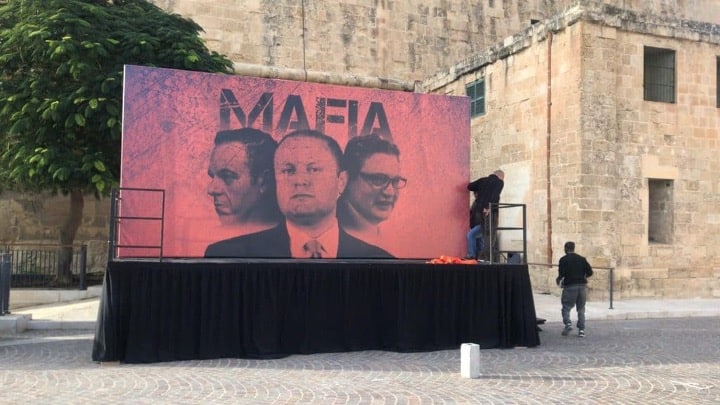
Quello che è quasi peggio è che nessuno è stato accusato per i crimini e la corruzione che lei ha svelato e che hanno portato al suo assassinio. È dolorosamente vicino all’Orient Express di Christie. Gli assassini si aspettano di rimanere sul loro treno ed andare dovunque i multimiliardari che hanno intascato fondi illeciti vadano alla fine dei loro viaggi criminali.
Lo scorso marzo, i maltesi sono andati alle urne per votare nelle prime elezioni generali dopo l’uccisione di Daphne e dopo che il governo è stato giudicato responsabile per il suo assassinio. La gente ha votato in modo clamoroso per lo stesso partito al governo. La gente chiede giustizia contro i criminali, giustizia dalle istituzioni, perché queste non sono nelle mani del popolo. Ma la giustizia politica è controllata dalla gente e la gente ha assolto quelli responsabili per l’assassinio di una giornalista.
Penso che la maggiore delusione significativa stia nel viaggio che abbiamo fatto, nel tentativo di persuadere la popolazione di Malta di quello a cui era esposto il loro paese. Era un argomento che Daphne ha sostenuto fino alla sua morte, cioè che sotto il meraviglioso velo dello sfoggio maltese di essere un paese europeo, indipendente e ricco, ci si deve rendere conto di come le sue istituzioni sono finite radicalmente in balia dei criminali. In altre parole, l’infiltrazione della mafia.
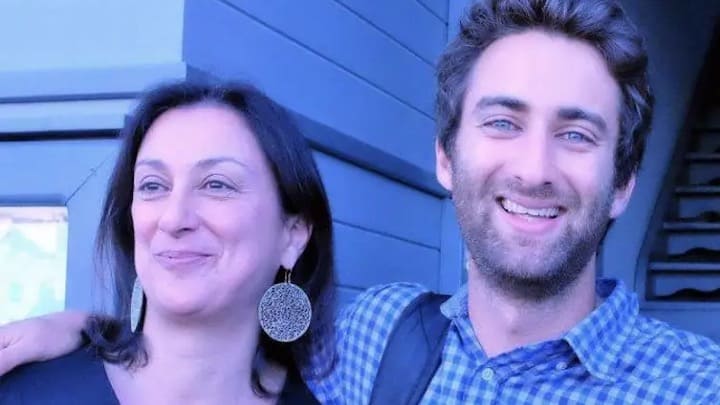
Un giorno o due dopo l’assassinio di Daphne, suo figlio Matthew ha definito Malta come stato mafioso. Nonostante tutte le prove, la sua affermazione è stata respinta dalla gente al potere a Malta. Voi potreste pensare che questo sia ovvio siccome loro stessi sono i mafiosi.
Dopo la fine politica di Joseph Muscat, un’inchiesta pubblica ha raccomandato che Malta reagisse contro l’infiltrazione della mafia e introducesse leggi per difenderci da essa, basate sul vostro modello qui in Italia, la 416 bis. Il governo ha ignorato la proposta e quando un membro parlamentare dell’opposizione ha proposto la legge al parlamento, i membri del governo l’hanno deriso, dicendo che solo chi vuole che Malta sia accusata ingiustamente di essere uno stato mafioso poteva volere una legge antimafia. Questo politico dell’opposizione ha perso il suo seggio parlamentare nelle ultime elezioni.
Non abbiamo smesso di lottare per la verità e la giustizia per Daphne, per la sua famiglia e per il nostro paese. Ma non posso non condividere con voi la delusione di dover venire da voi con la notizia che non abbiamo ancora convinto un numero sufficiente di persone che dovrebbero cambiare la loro posizione sulla semplice idea sbagliata che la mafia non esiste.
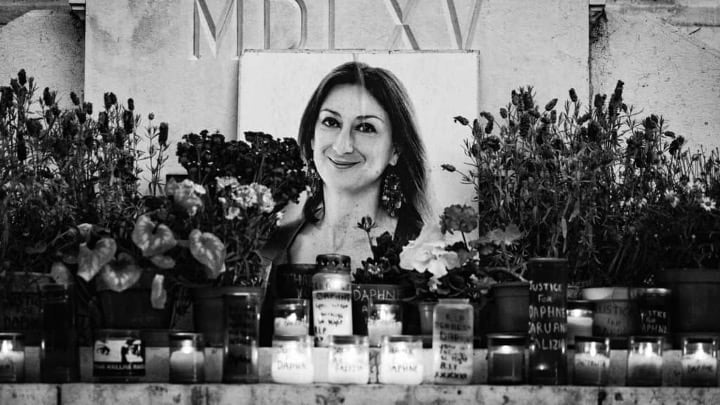
English translation:
The last time I was here among you was March 2019 for my first Medì meeting. That time we met under the theme ‘Le città hanno un’anima’ though in the speech I gave here I wondered what happened to the soul of my city, Malta.
You may remember I had told you the story of Daphne Caruana Galizia, who was killed by car bomb outside her home in October 2017, just over a year earlier. I was working at the time together with some colleagues on a book shortlisting the investigations that Daphne was working on when she was killed. We were convinced that in one of those stories lay the motive for her elimination. While the Maltese authorities looked elsewhere, we focused on her work in pursuit of the truth and justice for her.
A few months after I was here among you, I published together with two friends of mine a book about Daphne’s murder. In English, the title was a riff on Agatha Christie’s classic Murder on the Orient Express. This has been a Murder on the Malta Express. Malta does not have railways, but the metaphor of a hurtling train of dirty money rushing through the country on its way to Miami or London was irresistible.
More to the point was the fact that like the victim in Christie’s novel, Daphne was not short of enemies. It was unlikely that all of them could have been involved in her killing, but all of them stood to gain from it: politicians, business tycoons, smugglers, agents selling Malta’s citizenship to oligarchs, and the oligarchs that were buying it.
We left the question Who Killed Daphne Caruana Galizia? formally unanswered in the book. But I remember being in Madrid as a guest of the Comunità di Sant’Egidio in April of 2019 as we were wrapping up the manuscript. I remember being in Madrid having phone conversations with members of Daphne’s family who had the same information we did. The authorities had known who the mastermind likely was for a long time, but no one was moving to arrest them.
We – family, journalists – hoped that the killers didn’t know what we knew of them. We couldn’t be the ones to alert them that by now it had been reasonably common knowledge that they had killed a journalist. But we did want to shake Malta’s institutions into action. If nothing else, we wanted to guilt them into making arrests.
One of the last things I did in making that book was send questions to one Yorgen Fenech, a Maltese business tycoon, who ran a large conglomerate in Malta. Among Yorgen Fenech’s interests was a holding in the energy company Electrogas in which he was a partner with the Azerbaijan state-owned energy company. Another interest of his was the casino business.
I asked Yorgen Fenech some point blank questions. Why is it that one of the men awaiting trial for placing a bomb in Daphne’s car and blowing her up has an extensive record of gambling in Yorgen Fenech’s casinos and almost never losing?
Yorgen Fenech knew then the heat was on. We would later find out what he did after he got my questions, including a crippling lawsuit for 70 million pounds in London which never took off because of his arrest, but suffice it to say that what we knew that summer of 2019 was that he hired local lawyers to send all manner of threatening letters warning us of unimaginable consequences should we proceed with publication.
We got many threatening letters that summer. Malta’s prime minister of the time Joseph Muscat, his wife Michelle, two of his ministers, and his chief of staff, all people who got tough questions from us in preparation of our book investigating Daphne’s killing, hired a UK law firm to scare us.
I wish I could tell you we weren’t scared. I was working with Carlo Bonini, a senior journalist at La Repubblica, and John Sweeney, who worked for thirty years for the UK’s Guardian group and the BBC. They had seen their share of threatening letters in their careers. What was chilling about these threats was the effect they had on publishers. No one wanted to publish our book for fear of major lawsuits. Until we found a small publisher in Malta who was happy to take the risk.
After that, no lawsuits came, and the book was published internationally including in Italian translation here by Mondadori.
It would be wrong to think that our book alone changed the course of events. But alongside work of many other journalists working in Malta and outside it, it helped nudge things in the direction we wished them to go.
We published the book on the second anniversary of Daphne’s killing, in October 2019. Our questions to Yorgen Fenech demonstrated, if nothing else, our unambiguous suspicion of his involvement. An investigation by Reuters the year before had already shown that Yorgen Fenech owned the Dubai company exposed by the Panama Papers in 2016 as a vehicle to corrupt Maltese ministers. The noose was tightening.
We had gotten used to the impunity enjoyed by criminals in Malta. But that never meant we were going to accept it. As activists we kept up the pressure that started the very day Daphne was killed. We gathered monthly in Valletta to protests that go on to this very day. At an improvised memorial in her memory just opposite Malta’s law courts, people came every day to lay flowers and candles.
This simple act took quite a sinister turn. I must have mentioned this to you last time I was here. The government publicly ordered cleaners to remove the flowers and the candles every day, sometimes several times a day. They kept doing that until a court ruled, much later, that the government’s actions were an outrageous breach of the fundamental right to free expression.
But before that happened, supporters of the government were given the impression that we were doing something illegal so, thinking themselves good citizens, they harassed protesters, sometimes physically. I’m a big burly man. My wife isn’t. She was physically assaulted by two people, hurt, her phone destroyed. She wasn’t the only one.
At the time, we wondered if this was worth all the effort and all the hatred. It was, because ultimately what changed things was that the story was kept alive, and the pressure was never let up.
While this was happening one of the killers, a career gofer named Vincent Muscat, the guy who carried the bomb from storage to the murder scene and then watched from across the valley for Daphne to come out on her last journey, was speaking to the police, telling them what he knew.
He pointed to a taxi driver who worked at the Hilton Hotel. When we heard that, we knew what it meant. Yorgen Fenech owns the Hilton Hotel. The taxi driver was called Melvyn Theuma.
The police investigated this Melvyn Theuma. They found he ran a clandestine lotto, holding millions in cash at his home. For a long time, he was an errand boy for his boss Yorgen Fenech. The day after the assassins were arrested, he went to his notary to write a will. He was all of 38 years old.
Why weren’t the police arresting this guy? He could give them the entire conspiracy. They could at last bring the case to a close. Reporters started putting out hints in the press that they knew about Melvyn Theuma. Maybe the pressure on him and the pressure on the police could break the deadlock.
Eventually the deadlock was broken. In November 2019 Melvyn Theuma was arrested as part of a Europol money laundering investigation. Under arrest he spoke out nearly immediately. He asked for immunity to give the police the big fish: Mr Yorgen Fenech.
That started a chain of events that rocked the country. As those events unfolded, we felt like change was coming, like some resolution was near. We were learning the truth, now we could smell justice.
I want to tell you a few things we learned because they throw a brighter light on Maltese reality than anything we thought we understood in the spring of 2019 before all this happened.
Melvyn Theuma fully expected his arrest and spent the time before his capture gathering evidence that would back up the accusations he planned against his bosses. That evidence including secret recordings of his conversations with Yorgen Fenech.
From that, yes, we would learn that Yorgen Fenech ordered and paid for the murder. We would also learn that Yorgen Fenech was a close buddy of Silvio Valletta, a friend in a very high place. Silvio Valletta was Deputy Police Chief, responsible for all major criminal investigations. Valletta spent a lot of time at Fenech’s ranch. They travelled together to watch football games, obviously all expenses paid by Fenech.
Valletta was a friend in a good place. While he ran the criminal investigation department at the police, repeated requests by Sicilian prosecutors to notify Fenech he was being investigated for match fixing never got to their destination. I should mention that Valletta’s wife was a government minister. Daphne’s family twice asked the courts to have him removed from the investigation into their mother’s murder. I’m not sure they entirely knew why, but while Silvio Valletta was boss, no action would be taken against her killer.
Melvyn Theuma also had friends in high places. Through a common friend, he was connected to Lawrence Cutajar, the police chief at the time. Cutajar knew his officers were investigating Melvyn Theuma and yet he alerted Theuma to his impending arrest opening a discussion about immunity from prosecution before he was ever even in handcuffs.
Melvyn Theuma did not just name Yorgen Fenech. He also mentioned Keith Schembri, Joseph Muscat’s chief of staff, exposed by the Panama Papers, close friend of Yorgen Fenech’s. We never really learnt entirely what Melvyn Theuma knew about Keith Schembri’s possible involvement in the murder. Though he named him, he repeatedly said in court he couldn’t swear Schembri was a co-mastermind.
What we learnt was that Keith Schembri arranged for Melvyn Theuma to get a monthly government salary for a job he would never show up for: that told us that as taxpayers we could have very well-paid part of the cost of killing Daphne Caruana Galizia.
I should make it clear at this point that all concerned deny any wrongdoing. So far only two people are known to be guilty of killing Daphne. One is Melvyn Theuma who has been given immunity to testify against the other. The other is the small-time gofer who outed Theuma and other criminals to the police in exchange for a reduced prison sentence of 15 years.
Malta’s justice system has so far been unable to bring anyone to trial, let alone to secure their conviction.
One day, we hope, all that evidence will come to trial. One of the recordings will recall a conversation between Yorgen Fenech and Melvyn Theuma at a time when they were fearing arrest and thinking of ways to get away with it. They shared their concerns about protesters in Valletta calling for justice for Daphne. The crowds scared them. The people’s anger scared these hardened criminals. Hearing that was a moment of peace and rationality. No fight for truth is ever entirely futile.
But ours has not been entirely successful either. It is not just about Yorgen Fenech not being convicted. When Yorgen Fenech was arrested his phone was captured by the police. It would prove to be a treasure trove of evidence of just how deep crime and corruption had penetrated the Maltese state. Everyone was Yorgen Fenech’s friend. He fixed planning permits to build his skyscrapers. He fixed the gaming authority to launder money through his casinos.
What felt shocking at the time was that he lavished expensive gifts on Joseph Muscat, even when Joseph Muscat knew that Yorgen Fenech was a prime suspect in the murder. Yorgen Fenech was able to fix his impunity by securing the protection of the most powerful politician of the country.
People were angry and disgusted to read these texted conversations and very soon Joseph Muscat was forced to resign. Keith Schembri was arrested. Though later released there was no question of him returning to political power. Konrad Mizzi, the other Panama Papers minister, also lost his position of influence. As did Chris Cardona, whose involvement in multiple crimes was now more than a suspicion.
Even as he struggled to survive, Joseph Muscat conceded something he refused for two years: calling a public inquiry to establish what happened to Daphne Caruana Galizia and why.
The process was in and of itself a vindication for Daphne, her family, and their supporters. The inquiry ruled that the Maltese state was responsible for Daphne’s killing. That Malta’s institutions looked away from the corruption she exposed and did nothing about it. That Malta’s police failed to protect her when the danger she was in was so clear. That Joseph Muscat and his ministers had fostered the climate of impunity that gave criminals the idea they could kill Daphne and get away with it.
If this feels like the path to a happy ending, that we finally got justice, I’m sorry but it isn’t.
It’s bad enough that no one has yet been convicted of killing Daphne even though we’ve known for so long who was all too likely directly responsible. What’s almost worse is that no one has been charged for the crimes and the corruption she had exposed and that caused her killing. It’s painfully close to Christie’s Orient Express. The murderers expect to stay on their train and go wherever it is that multi-millionaires who have pocketed illicit funds go to at the end of their criminal journeys.
Last March, Maltese people went to the national polls to vote in the first elections since Daphne was killed and the government was found responsible for her killing. People voted resoundingly in support of the same government party. People ask for criminal justice, and for institutional justice, because they’re not in the people’s power. But political justice is in control of the people and the people have acquitted those responsible for killing a journalist.
I think really the most significant disappointment was the journey through which we went, seeking to persuade the people of Malta what their country was now exposed to. It was an argument Daphne died making, that under the pretty veil of Malta’s trappings as an independent, prosperous, European country, account must be given of the dark capture of its institutions by gangsters. In other words, the infiltration of the mafia.
A day or two after Daphne was killed, her son Matthew, described Malta as a mafia state. Despite all the evidence, his claim was rejected by the people in power in Malta. You would think that obvious given they were the mafia themselves.
Then Joseph Muscat fell, and a public inquiry recommended that Malta wakes up to mafia infiltration and introduces laws to protect us from it, based on the 416 bis model here in Italy. The government ignored the proposal and when it got to Parliament proposed by an Opposition MP, the government mocked him, saying only people who want Malta to be falsely accused of being a mafia state wanted anti-mafia legislation. That politician lost his seat in the last elections.
We haven’t given up the fight for truth and justice for Daphne, her family, and our country. But I can’t help sharing with you the disappointment of coming to you bearing the news that we haven’t convinced enough people yet to change their mind about the plainly wrong idea that the mafia does not exist.